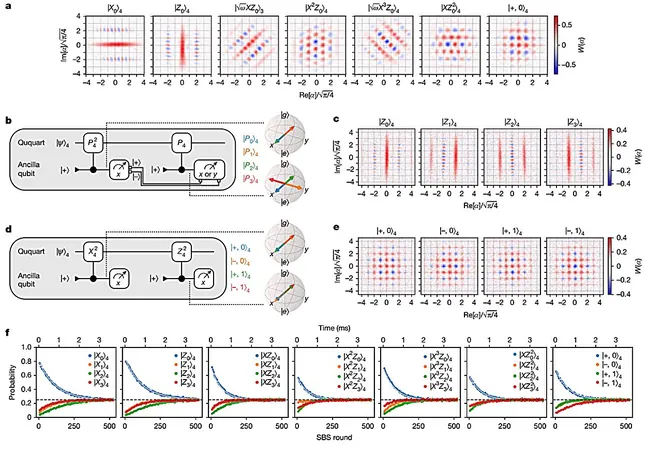
Revolutionizing Quantum Computing: First-Ever Error Correction for Qudits Unveiled!
2025-05-18
Author: John Tan
A Game-Changer in Quantum Computing!
In the highly competitive arena of quantum computing, the dimension of the Hilbert space—the very measure of a quantum computer's potential—is a coveted asset. Larger Hilbert spaces paves the way for sophisticated quantum operations and are vital for effective quantum error correction (QEC), which safeguards delicate quantum information against noise and errors.
The Breakthrough Study from Yale University
In a groundbreaking study, researchers from Yale University have made headlines with their creation of qudits—quantum systems that transcend the basic two-state limitations of traditional qubits. They successfully executed the first experimental quantum error correction for higher-dimensional quantum units using the innovative Gottesman–Kitaev–Preskill (GKP) bosonic code.
Why Qudits Are The Future?
While the majority of existing quantum computers operate using qubits—fundamental units that can hold either a 0, a 1, or both simultaneously—scientists are awakening to the immense potential of qudits, which can exist in multiple states. The allure of qudits lies in their ability to simplify complex tasks such as constructing quantum gates, executing algorithms, and simulating intricate quantum systems.
Revolutionizing Quantum Error Correction
Despite their promise, much of the research surrounding QEC has been historically centered around qubits, leaving qudits in the shadows. The Yale researchers have turned that narrative on its head by demonstrating effective error correction mechanisms for both qutrits (three-level systems) and ququarts (four-level systems). They harnessed a reinforcement learning algorithm to refine their methods, showcasing a significant leap in error correction efficiency.
A Major Milestone Achieved!
This experiment not only broke new ground for QEC methods but also revealed a more practical and resource-efficient approach to maintain quantum fidelity through the utilization of a larger Hilbert space. While there are challenges such as photon loss and dephasing that could slightly reduce the longevity of quantum information encoded in logical qudits, the trade-off offers a treasure trove of logical quantum states within a single physical framework.
A Bright Future Ahead!
These remarkable findings signal a bright horizon for the development of robust and scalable quantum computers. The implications stretch far beyond computing; we are looking at potential breakthroughs in fields such as cryptography, materials science, and drug discovery that could reshape entire industries.

 Brasil (PT)
Brasil (PT)
 Canada (EN)
Canada (EN)
 Chile (ES)
Chile (ES)
 Česko (CS)
Česko (CS)
 대한민국 (KO)
대한민국 (KO)
 España (ES)
España (ES)
 France (FR)
France (FR)
 Hong Kong (EN)
Hong Kong (EN)
 Italia (IT)
Italia (IT)
 日本 (JA)
日本 (JA)
 Magyarország (HU)
Magyarország (HU)
 Norge (NO)
Norge (NO)
 Polska (PL)
Polska (PL)
 Schweiz (DE)
Schweiz (DE)
 Singapore (EN)
Singapore (EN)
 Sverige (SV)
Sverige (SV)
 Suomi (FI)
Suomi (FI)
 Türkiye (TR)
Türkiye (TR)
 الإمارات العربية المتحدة (AR)
الإمارات العربية المتحدة (AR)